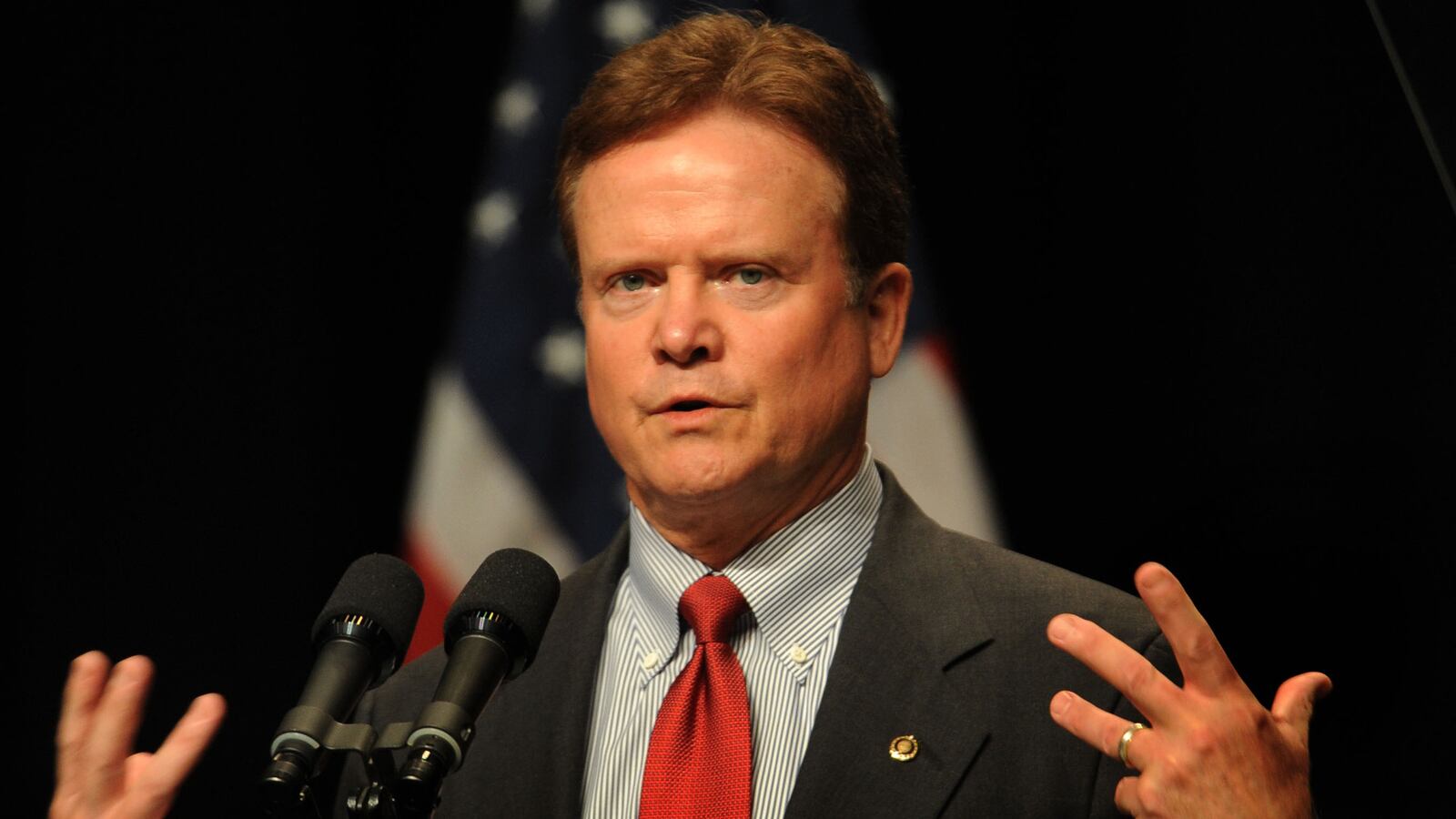Jim Webb is apparently no exception to the rule that whenever a U.S. senator gazes into a mirror, he sees a future president of the United States.

The rule even applies to former senators: The 68-year-old Webb—a center-right Democrat who is also known as a combat-decorated Marine during Vietnam, a secretary of the Navy under President Reagan, a best-selling novelist and a Hollywood screenwriter—served a single term representing Virginia from 2007 to 2013 and then opted not to run for reelection. Instead he dropped out of public view to write and “regain my political independence.”
“I understand the nominating basis of both parties—they’ve both moved to the extremes,” Webb said Wednesday night at New York’s private Core Club, where he spoke about his life and times and signed copies of his just-published memoir, I Heard My Country Calling, during an event sponsored by the Hudson Union Society. “Whether I would run or not, it’s a challenge for the country. The country really needs people in the middle who can lead.”
The physically fit, strawberry-haired Webb, who looks a decade younger than his chronological age, said he is “taking this one day at a time” regarding a decision about a candidacy—a formulation that is substantively no different from undeclared front-runner Hillary Clinton’s. But he left no doubt that he believes himself to be just the sort of centrist leader who can break the Democrat-Republican stalemate in Washington.
“What we need is people who will take the risk and put the issues that Americans care about on the table, and try to work with both sides to solve our problems. And I don’t think that’s impossible. I think that’s very doable,” Webb said, enumerating several instances in his public life in which he grappled with politically perilous problems, worked hard to persuade disparate interests groups to “buy in” to a solution, and reached across the aisle to enact legislation.
He cited his role in passing the post-9/11 GI Bill over the objections of President George W. Bush. Another of Webb’s efforts, to establish a commission to reform the criminal justice system, including studying the possibility of reducing harsh sentences for drug convictions, fell three votes short in the Senate of the 60-vote filibuster threshold.
He also touted his expertise in foreign policy and military strategy, gained as a journalist in the Middle East and as a Pentagon official, as well as a combat officer during the height of the Vietnam War. (His critically acclaimed 1978 novel, Fields of Fire, drew on that experience.)
Webb, an opponent of the second President Bush’s war with Iraq, said American combat troops should get out of Afghanistan ASAP. An Air Force brat whose father moved the family “more than 30 times” during his childhood to take up posts from Mississippi to Alaska, Webb has a son, Jimmy, who left Penn State to enlist in the Marines and ended up as a rifleman in the Iraqi city of Ramadi, where some of the war’s heaviest fighting was occurring.
“Our family has a military tradition,” Webb said. “When there’s a war, we go.”
In an anecdote worthy of a Frank Capra movie, he described meeting Bush at a White House cocktail party for the nine newly elected freshman senators of 2006. After Webb refused to have his picture taken with the president, Bush sought him out. “How’s your boy, Jim?” the president asked. “I’d like to get them out of Iraq,” Webb replied. “That’s not what I asked you—How’s your boy?” Webb snapped back: “Mr. President, that’s between me and my boy.”
“I wasn’t trying to disrespect the president…Maybe we both had a bad day,” Webb said. When Jimmy Webb finally returned from Iraq, the senator arranged for father and son to visit the White House and finally get that presidential grip-and-grin that Bush had apparently desired.
Webb—who campaigned for Barack Obama in 2008 and 2012 and served with him in the Senate—had mild praise for the current president.
“I like President Obama personally,” he said. “There have been times when I introduced him in Virginia where I said, ‘I disagree with this president at least once a week.’ But he’s done his best. We could do a lot better in terms of articulating the vision for this country in domestic and foreign policy. I’m just gonna stop right there.”




